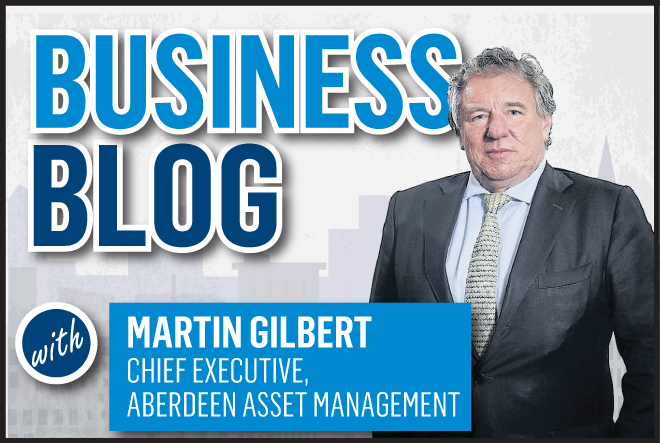The tsunami that hit banks in 2008 not only wiped out a great deal of wealth and did great harm to the global economy, it also badly dented the reputations of formerly respected institutions and put a questionmark over the entire financial services industry.
Over recent years, shadows have also been cast over other businesses and sectors, with questions asked about the conduct of management, culture of organisations and the treatment of customers.
Suddenly, capitalism, after enjoying a pro-market climate for 20 years, is back on the defensive.
Business now has to make the case for the market all over again. That doesn’t just mean winning economic arguments – we need to make the moral case as well. We have to show the world that capitalism, properly practised, is the best vehicle for benefiting society. We must demonstrate that capitalism is inclusive.
What is “Inclusive Capitalism”? For me, it’s about recognising our responsibilities beyond pure profit. It means acting in the best interests of our shareholders, clients, employees and wider stakeholders like local communities and suppliers. A business will prosper in the long run only if it delivers value to the society in which it operates. Half a century ago, legendary investor Sir John Templeton proved that a virtuous enterprise is also a highly profitable one.
Capitalism needs a social and moral dimension, as well as profit. I believe Inclusive Capitalism is the way forward and so do a lot of other people venerated in their fields. At this year’s Inclusive Capitalism conference, to be held in London on June 26, speakers will include the Prince of Wales, former US President Bill Clinton and Mark Carney, governor of the Bank of England.
I believe there are three broad aspects to inclusiveness.
First, it is treating customers fairly. A customer’s experience with a company needs to be a positive one with transparency regarding the goods or services being acquired and the price charged. Businesses must have integrity and work to the best of their ability in the interests of their customers.
At Aberdeen Asset Management, we are stewards of other people’s money with a responsibility to deliver a valued service at a fair price. Individuals have entrusted us with their savings to invest responsibly for their future.
Our long-term success depends on whether we can add sustainable value to client portfolios. This value primarily comes down to performance, but also from an emphasis on quality across every aspect of our business – from client service to investment communications, from administration to corporate governance.
Second, business needs to respect its other stakeholders. Companies should be committed to supporting the communities in which they operate and recognise their responsibility to make a positive impact. I was immensely proud last month of the number of my colleagues around the world who volunteered to spend Global Volunteering Day working for local projects from care homes in Aberdeen to soup kitchens in Singapore.
When it comes to suppliers, they need to be paid a fair price for the goods and services they provide. In addition, suppliers should be chosen which support the core values of a business which is dedicated to Inclusive Capitalism – this means that responsible companies can have an impact far beyond their own remit, and over time influence the culture of the entire industry.
Last, but by no means least, looking after employees. A workforce isn’t a single entity; it’s made up of individuals with hopes and aspirations. They need to be treated and rewarded fairly and motivated to fulfil their responsibilities – to customers and shareholders. Appropriate mechanisms to reward contribution to the social and moral dimensions are key to supporting and reinforcing the values of Inclusive Capitalism.
Furthermore companies should also promote diversity within the workplace. Diversity is not just about gender equality, it encompasses such things as ethnicity, sexuality and social background.
Anne Richards, our chief investment officer at Aberdeen, made an important point when addressing the “Make It Happen” theme of this year’s International Women’s Day: “Diversity in all its forms should be seen as a competitive advantage rather than a politically correct box-ticking exercise.”
That’s exactly right. Promoting diversity is not social engineering; it’s a commercially astute enlistment of talent from a pool that may be neglected by competitors. Inclusion is good business.
Shareholders and wider society will benefit if more companies adopt an inclusive approach to capitalism.
